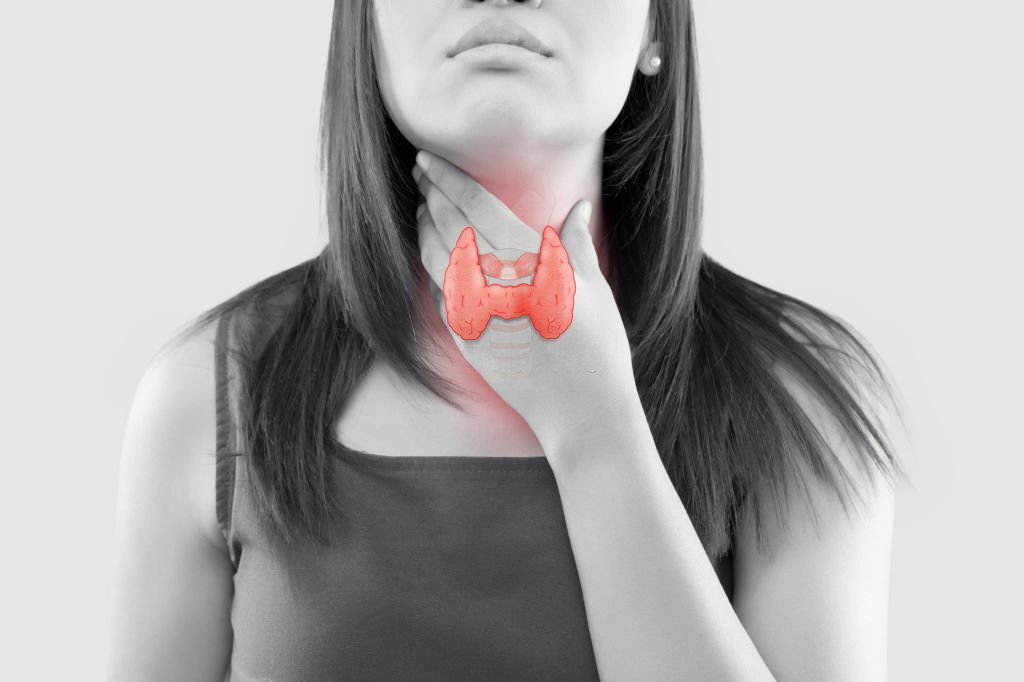Disease
Thyroid Peroxidase (TPO) Test: Purpose, Procedures, Test Results & Normal Range
30977 Views
0

What is Thyroid Peroxidase?
The thyroid gland is a vital endocrine organ that regulates the metabolism and protein synthesis in the body. It is located in the lower part of the neck and wrapped around the windpipe. Thyroid peroxidase (TPO) is a hormone that affects the production of hormones from the thyroid gland. The enzyme TPO helps the thyroid glands to produce triiodothyronine (T3) and thyroxine (T4) hormones .
What is Thyroid Peroxidase Antibody?
An antibody is a protective protein produced by the immune system against an antigen, a foreign substance. Antibodies help remove antigens from the body by binding to them. When antibodies attack the body cells, they produce an autoimmune response. Thyroid peroxidase antibodies prevent thyroid peroxidase from catalysing the production of thyroid hormones.
What is the Thyroid Peroxidase (TPO) Test?
The TPO antibodies test measures the level of antibodies directed against the TPO. Your immune system produces the thyroid peroxidase antibodies when the cells in your thyroid become damaged. The presence of the autoantibodies, therefore, suggests damage to the thyroid tissue by your immune system.
Why is the TPO test done?
Your doctor may order a TPO antibody test if you are suffering from symptoms of hypothyroidism. This is done to rule out autoimmune disease as the cause.
What Does the TPO Test Indicate?
The results from the TPO antibodies test determine the presence of an autoimmune condition affecting thyroid gland.
Positive Result
A positive result will indicate or confirm the presence of TPO antibodies in your blood. Moreover, TPO antibodies in your bloodstream suggest that the cause of thyroid disease is an autoimmune disorder. Some individuals with TPO antibodies may not have thyroid disease, but may be at an increased risk of future thyroid disorders.
Your antibody levels may rise with an autoimmune disease or a thyroid disorder. A positive test will indicate any one of the following conditions:
- Hashimoto’s thyroiditis: This condition involves swelling of the thyroid gland, often leading to a reduction in thyroid function.
- Grave’s disease: An autoimmune disorder, Grave's Disease will cause thyroid gland to become overactive.
- G
Women with increased levels of antithyroid microsomal antibodies are at a greater risk of pregnancy-related issues, such as:
- Premature birth
- Difficulties in in-vitro fertilisation
- Preeclampsia
- Miscarriage
How is the TPO antibodies Test Performed?
TPO antibodies test is a blood test in which your healthcare provider or a laboratory technician will take a sample of your blood to measure the number of antibodies in your body. Your healthcare provider will choose a site on your arm, typically the back of your hands or inside the elbow, and clean it. To access your veins, they will tie an elastic band around your upper arm. After this, a needle gets inserted, and the blood collected in a test tube. You can expect to receive the test results within a few days of submitting your sample.
What are the types of thyroid antibody Tests?
There are several types of thyroid antibody tests. These include the following:
Thyroid peroxidase antibody (TPOAb) test helps detect Grave’s disease and Hashimoto’s thyroiditis.
Thyroglobulin antibody (Tg Ab) test is conducted in people with thyroid cancer or Hashimoto’s thyroiditis. Thyroid-stimulating immunoglobulin and Thyroid-stimulating hormone receptor antibody (TSHR Ab/ TRAb) tests are essential for individuals with Grave’s disease.
Are There Any Risks and Side Effects of this Test?
While the blood test is completely safe, rarely you may experience bruising or lightheadedness
Summary
Thyroid peroxidase is an essential enzyme for the production of hormones from the thyroid gland. The immune system produces thyroid peroxidase antibodies in response to thyroid cells. If the thyroid cells are healthy, a high elevation of thyroid antibodies indicates an autoimmune condition. Your doctor may use the antibody test for diagnosing autoimmune disorders.























 WhatsApp
WhatsApp
